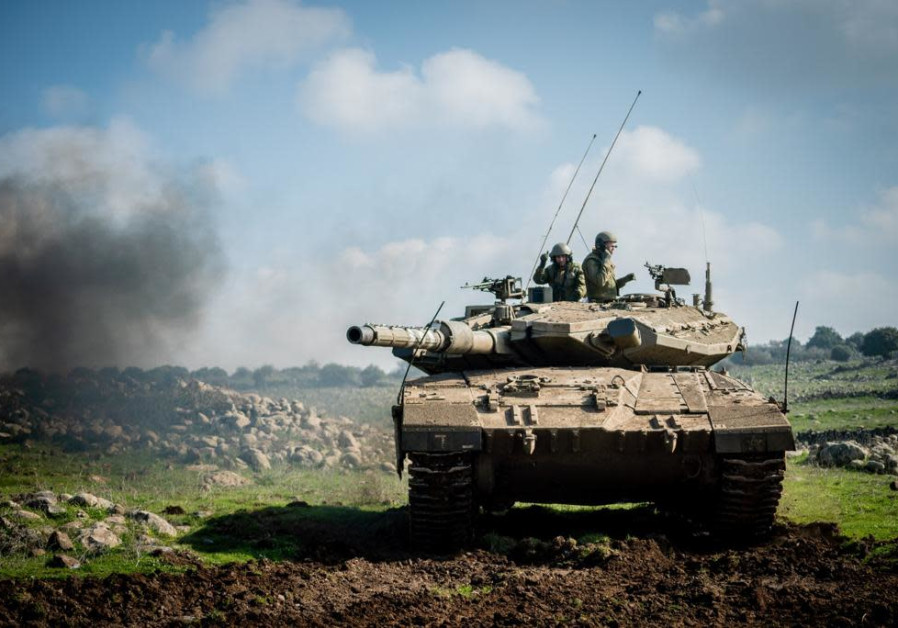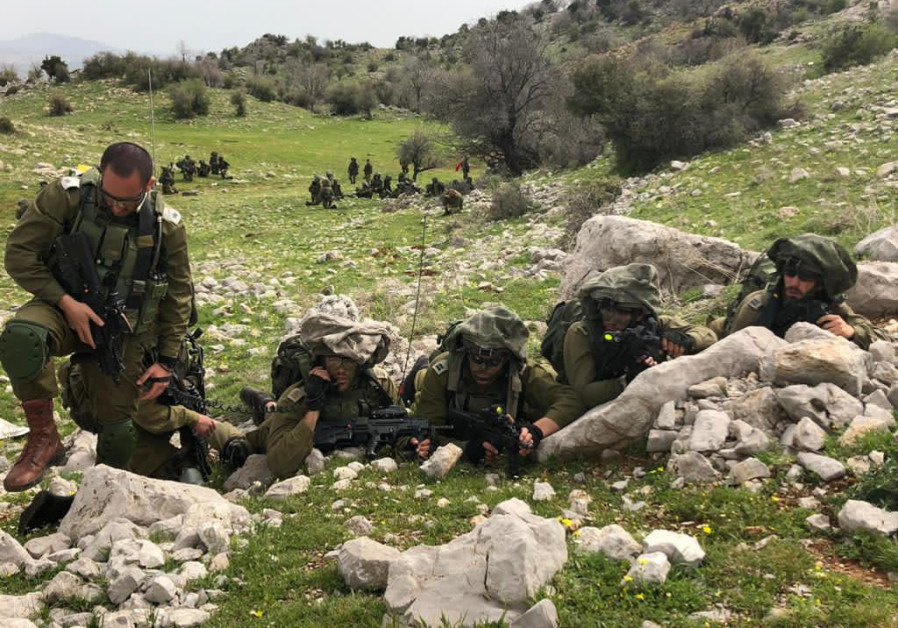15 years after Second Lebanon War, IDF warns it has thousands of targets ready to be attacked.
By ANNA AHRONHEIM
JULY 14, 2021 21:51
Fifteen years after the Second Lebanon War, both the IDF and Hezbollah continue to rattle sabers and warn the other side that any future war between the two foes would be deadlier than ever.
“After the Second Lebanon War, Hezbollah learned a lesson that has held for 15 years,” said OC Northern Command Maj.-Gen. Amir Baram, adding that “if there is another war, they will pay a much higher price.”
In the close to two decades since the war, both sides have significantly increased their capabilities, which will cause untold damage and cause significant casualties to both sides.
While Hezbollah claimed to have lost 250 fighters during the war, other figures put the Hezbollah death toll at more than 600. Over a thousand Lebanese civilians were killed and thousands more evacuated from Lebanon.
With the help of Iran, the group has rebuilt its arsenal since 2006. It is estimated that Hezbollah has 130,000-150,000 rockets and missiles, many that can reach deep into Israel, including ballistic missiles with a range of 700 kilometers.
Hezbollah’s project to build accurate and precise missiles, which is done using Iranian know-how, funding and guidance, has been targeted by Israel on numerous occasions in Syria – and according to foreign reports in Iraq and Lebanon as well – as part of its “war between the wars” campaign.
It is believed that in the next war, the terrorist group will try to fire some 1,500-3,000 rockets per day until the last day of the conflict.
While the primary threat posed by Hezbollah remains its missile arsenal, the IDF believes that the next war will see the group trying to bring the fight to the home front by infiltrating Israeli communities to inflict significant civilian and military casualties.

WITH MORE than 40,000 fighters organized in battalions and brigades, Hezbollah forces have gained battlefield experience from fighting in Syria. The group’s elite Radwan unit, which was established to carry out covert operations against Israel, has also gained extensive operational experience.
Most of the group’s thousands of operatives have returned to south Lebanon, and the military views them as a significant threat to communities along the border. Radwan operatives are expected to be at the forefront of any Hezbollah attack against Israel, infiltrating into Israeli communities along the border to kill as many civilians and troops as possible, accompanied by a massive barrage of rockets, mortars, anti-tank missiles, and more.
Israel has been building an upgraded border security fence, but due to financial constraints it has completed only several kilometers of the concrete barrier along the Lebanese border.
The rest of the border is a fence that was originally built in the 1980s, and though the military becomes aware of breaches in the fence, which allows troops to quickly get to the scene, senior officers have admitted that it would not stop infiltrations by Radwan operatives.
Due to the threat of infiltrations by Hezbollah, some 22 Israeli communities along the border with Lebanon will be evacuated when a war breaks out. But the IDF is aware that any evacuation of northern communities will have to be organized and not fall on citizens to carry out at their own cost.
TWO YEARS ago, the IDF launched Operation Northern Shield to discover and destroy all cross-border tunnels dug by Hezbollah into northern Israel. It said that it found and destroyed six such tunnels. The destruction of the tunnels was a significant hit to the group, and it hasn’t tried to rebuild them since.
But even if that one strategic surprise was thwarted, Israeli officials have warned that any war that breaks out in the North will not be confined to one border like it was 15 years ago in Lebanon, but with southern Syria as well, where Hezbollah has entrenched itself on the Golan Heights.
The IDF is also concerned that rocket fire might also come from Iraq as well as from the Gaza Strip.
And should war break out, the military knows that it will not be able to rely solely on the air force, but will need to use its ground troops to neutralize Hezbollah and its capabilities in villages in south Lebanon.
“The fire from the air will be powerful in the first hours of the fighting. But to defeat the enemy at the operational stage, we will need a land maneuver,” said 36th Division Commander Brig.-Gen. Dan Noyman.
But the IDF hasn’t conducted a full and proper ground maneuver in enemy territory since troops entered Gaza in 2009 during Operation Cast Lead – and Lebanon’s topography gives Hezbollah the advantage over Israel.
The military knows it has to train its troops and officers, many of whom have not experienced combat, and has carried out numerous large-scale drills to test the readiness of battalions in the North for aggressive maneuvering deep inside enemy territory.

IDF soldiers train in the north of Israel in preparation for any future wars with Hezbollah in Lebanon. (Credit: IDF SPOKESPERSON’S UNIT)
After three years of work, all of the IDF’s operational plans for a war in the North are in the final stages. And with the training, in addition to new techniques and advanced intelligence capabilities, Baram is confident in the IDF.
The IDF is “preparing surprises for Hezbollah,” Baram says, and while the next war will be “complex,” with damage to infrastructure as well as civilian and troop casualties, it will be “unbearable” for the terrorist group.
“Our message to Hezbollah: In the next campaign, you will face a more trained, deadly and determined army than ever before,” he warned.
MANY OF Hezbollah’s capabilities and infrastructure are intertwined with the civilian infrastructure of Lebanon. And though Israel refrained from striking Lebanese infrastructure during the Second Lebanon War, Israeli officials have warned repeatedly that the next war will cause unbelievable destruction to the country.
Lebanon is currently suffering from an economic crisis that the World Bank says is one of the world’s worst financial crises since the 1850s. Violence and protests have broken out around the country, as basic services collapse.
According to a recent assessment released by UNICEF, some 77% of Lebanese households don’t have enough money to buy food. The country’s medicine importers have warned that they have run out of hundreds of essential drugs, and electricity outages and gas shortages are commonplace.
Reuters reported on Wednesday that UNICEF has started giving cash handouts in US dollars to the families of some 70,000 Lebanese, Syrian and Palestinian children at risk of “child labor, early marriage or exclusion from schooling” due to the crisis.
The Lebanese Armed Force is also feeling the economic crisis, with troops earning only $400-$500 a month. The LAF has even announced it is offering tourists helicopter rides for $150 to make money.
The Israeli military has been monitoring the situation and is ready to deploy reinforcements to its northern border should Hezbollah use it to attack Israel. Nevertheless, the IDF believes that Nasrallah is too concerned with internal issues to begin a war with the Jewish state.
Content retrieved from: https://www.jpost.com/arab-israeli-conflict/northern-command-head-hezbollah-to-pay-a-heavy-price-if-war-breaks-out-673812.